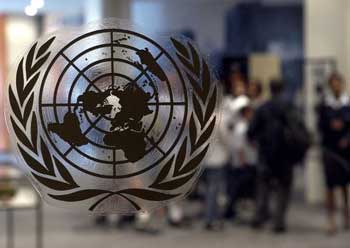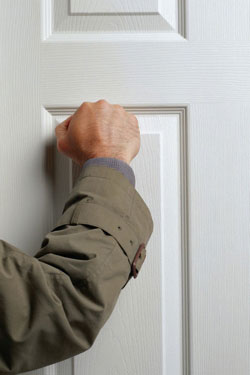 |
|
| • Geneva : Place des Nations |
|
| • Are priests useful ? |
|
| • Meeting the young |
|
| • Waiting for the Court bailiff |
|
| |
|
| Geneva : Place des Nations |
|
| |
|
 |
Iranians and their families, residents of the city of Achraf in Irak, gather each day, at Place des Nations, in front of the UN headquarters, in Geneva. From morning till night, they organize sit-ins with speaches and music. |
|
|
| |
|
The city of Achraf is situated northeast of Bagdad. For twenty years, 3,500 people opposed to the Iranian Regime are established and live there as a family. They are not armed and are well considered by the civil population and the chiefs. They are covered by the fourth Convention of Geneva and it is the responsibility of a multinational coalition to protect them.
But the Teheran Regime, who had never accepted this centre of resistance in Irak, has increased the pressure on the Irakian government to have them handed over to Iran. In an official declaration, Bagdad has announced its intention to expulse them. It would be a disaster when it is known how Teheran treats the opponents of the Regime. |
|
| |
|
| It was in this context that I was urgently invited to go to Geneva, between two trains. There were around one hundred Iranians at Place des Nations, with yellow parasols, because the sun was oppressive. I knew most of the opponents of which women who have lost their sons in Iranians jails. I gave a speech with some others invited from abroad. |
|
|
|
| |
|
« I am also your friend when things go bad. When I show my solidarity, it is also to the people living in Achraf. They know we are here for them. What affects them, also affects us. We ask the International Red Cross Committee (IRCC), who is situated near here, to intervene directly in order to garantee the security of Achraf and the protection of those who live there. »
A delegation was to be received by the IRCC in the afternoon.
|
|
| |
|
 |
|
| |
|
| Are priests useful ? |
|
| |
|
It was the subject of a debate of a radio program, a national radio station with a high rating. The duration of the program was one hour. There were two guests: a woman journalist who had just published a study on priests of France and myself. During the program, the listeners had the possibility to react and ask questions.
At first, the host gave the results of a study made by the radio station : « 45% of the people interviewed said that the priests are not useful and 45% think that they are useful. » A good opening for the debate ! |
|
| |
|
Without further ado, some listeners reacted: « We are in a country that has adopted laicity (separation of Church and State), why have you chosen to make a program on the priests ? » « You take advantage of a public service to make publicity for the priests. »
« The priests should disappear. They have no utility. »
I simply gave my own testimony : « Luckily for me I met priests all my life. I owe them so much.! ». |
|
|
|
| |
|
The woman journalist quoted, appropriately, words from priests she has interviewed.
Both of us made the same observation: the listeners who talk against priests must not know any priest personally. They have images of priests that they have received in the past during their education or that they have made themselves. But they do not meet any priest today. It is true that they are rare in France.
At the end tof the program, the host announced : « After this debate, 52% of the people interviewed said that the priests are useful, 35% said they are not. » |
|
| |
|
 |
|
| |
|
| Meeting the young |
|
| |
|
150 young, boys and girls, 16-25 years old, are gathered near Namur in a large rural school for a weekend of training. They are part of the famous Belgium « Patros ».
Right away, I am impressed by something : these young are not individualists, they think about others and know how to live together. I told my admiration to the leaders who said to me: « It is normal. They are used to having responsibilities with the youths. »
The training was on « the fears within us ». During the evening, the youths ask me questions that they had prepared on this subject. They are sitting on the floor in a large decorated hall, near a bar where Belgium beer will later be served.
First, I am eager to tell them that fear can have a beneficial effect.
Who does not know the intervention of a doctor who warns his patient : « If you continue drinking, smoking, or eating as you eat, you will be in danger of death. » Fear can help change a behavior. |
|
| |
|
 |
We know today the warnings of climate change and its horrendous consequences. We are heading towards a wall. Fear causes a collective realization and warns us to change our habits towards the planet, the resources that are wasted by us, of our ways of living.
The fear within us have also the advantage of making us vulnerable and finally very human. » |
|
|
| |
|
One youth asked the question « Are you afraid of what will happen after death? Will we still be living ? »
« I do not wonder if I will be living after death, but if I am living before I die. »
The meeting closed with beer being served in a very warm atmosphere.
One youth told me : « Tomorrow at 6 am your breakfast will be ready. Effectively in the calm of the night, this youth got up very early so that the coffee was ready at 6 am with a warm croissant.
He was happy to be there and to be helpful. He went back to his bed as I went to take the train. |
|
| |
|
 |
|
| |
|
| Waiting for the Court bailiff |
|
| |
|
 |
The association « Droits devant » (First Rights) of which I am copresident, has been occupying for the last 12 years, a makeshift premises for which we pay rent each month. The landlord does everything to make us leave. Last threat: a new Court bailiff has announced his visit to the association. It is not a good sign.
Preparations for action are made. We were afraid. The coming of a Court bailiff means the obligation of leaving the premisses or else be expelled by the police. Suddenly, word of mouth starts working. The people with no official documents pass the news to one another. Danger is present: everyone should come to the association when the Court bailiff comes. |
|
|
| |
|
Three German friends, passing by Paris, are eager to accompany me and see what will happen.
The people without no official documents, all Africans, have come in great number. Our lawyer is there. Standing, all packed one against the other, they occupy all the space in the premises of the association. I have difficulty getting inside. My friends are impressed. There is silence before the threat of this man who will be coming soon.
It is noon. I am on the doorstep. A stranger is coming. For sure, it is him. I bid him welcome and made him come in. We cleaved one way through the compact group of Africans. In the middle of the large hall, I stood on a chair and spoke to the people with no official documents : « It is formidable that you be all here. Thank you. I am filled with admiration for you. Well done. » And turning towards the bailiff, I said to him : « All the people with no documents that you see here have come to meet you, as well as three German friends who were passing by. These premises are very useful, every day. Despite all our efforts in looking for new premises,we were unable to find any. This is why we stay here. »
The bailiff said to me : « What you have told me is enough. It is well this way. No problem. » and he left quickly. |
|
| |
|
| I spoke again. What a relief. A slight breath of victory. The people with no documents are happy and start speaking. They have not come in vain! |
|
|
|
| |
|

